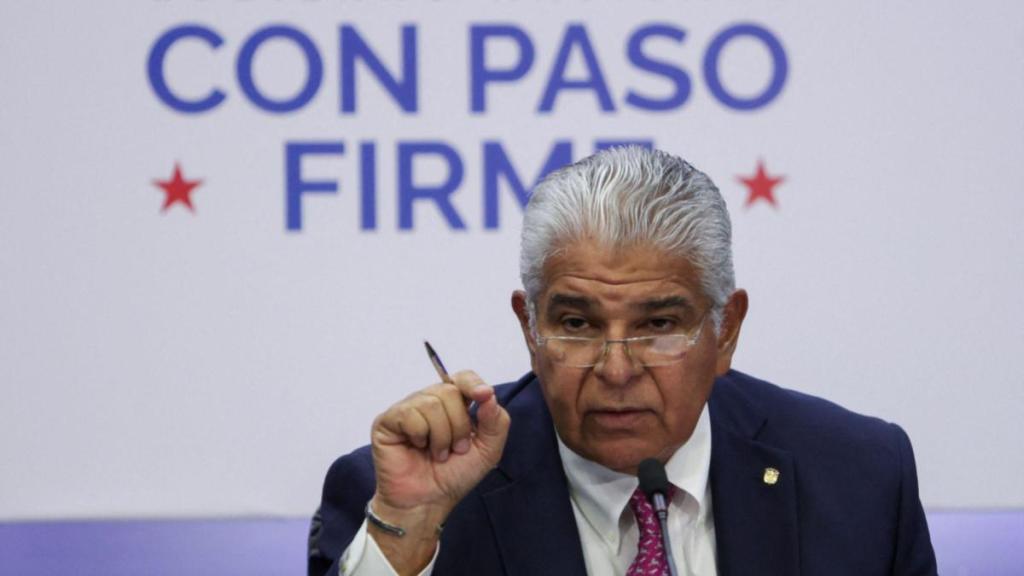In a bold response to U.S. President-elect Donald Trump’s recent allegations, Panamanian President José Raúl Mulino has categorically rejected claims that Chinese troops are “operating the Panama Canal.” Trump, in a post on his social media platform Truth Social, accused Panama of “ripping off” the U.S. and mocked that Chinese soldiers were illegally controlling the vital waterway, which connects the Atlantic and Pacific Oceans.
Mulino swiftly responded to these claims during a press briefing in Panama City, labeling them as baseless and “nonsense.” He stressed, “There is not a single Chinese soldier in the canal. For the love of God, you are free, the whole world is free, to visit the canal if you please.” Emphasizing Panama’s sovereign control over the canal, he further stated, “What [Trump] has said on this issue does not exist.”
Panama’s Sovereignty Over the Canal: A Historical Context
The Panama Canal has been under Panamanian control since 1999, following the signing of the Torrijos-Carter Treaties, which led to the U.S. transferring operational authority to Panama. Mulino was firm in defending this sovereignty, making it clear that the canal would never be relinquished. “The canal is Panamanian and belongs to Panamanians,” he declared, and he rejected any possibility of renegotiating its ownership.
In addition to rebutting Trump’s claims, Mulino addressed Panama’s diplomatic relationship with China, which has raised eyebrows in the U.S. since Panama switched its recognition from Taiwan to China in 2017. Despite growing concerns from some U.S. lawmakers about Chinese influence in the region, Mulino described the bilateral relationship as one of mutual respect. “Our relationship with China is respectful, well-managed … in terms of what is in the interest of both countries,” he affirmed.
Experts Weigh In: A Global Perspective on the Canal’s Importance
Hari Seshasayee, co-founder of Consilium Group, a Latin American advisory firm, echoed Mulino’s dismissal of Trump’s rhetoric, calling the suggestion of re-taking the Panama Canal “a logistical impossibility.” Seshasayee, who has extensive expertise in global trade, pointed out that the canal has been operated by Panama for over two decades and has seen significant improvements since its transfer. “For 25 years, the Canal has been managed by Panamanians, who have doubled the canal’s capacity after taking over its operations,” he explained.
He further highlighted the potential global fallout of any attempt to disrupt the canal, which handles a large proportion of international maritime traffic. “Any disruption to the canal would be disastrous for global shipping,” Seshasayee warned, stressing that even a brief closure would result in billions of dollars in losses. He noted that the U.S. would be particularly hard-hit, as nearly 40% of its annual trade passes through the waterway.
Trump’s Broader Critique of Latin America and Trade Policies
Trump’s comments on the Panama Canal were part of a broader critique of U.S. relations with its neighbors. At a recent Turning Point USA conference, the former president targeted both Canada and Mexico over what he considered harmful trade practices and border issues. His threats to “seize” control of the canal, however, appear to be an extension of his broader approach to foreign policy, which often centers around economic nationalism and protectionism.
Mulino, for his part, was resolute in defending Panama’s sovereignty against foreign pressure, declaring, “The sovereignty and independence of our country are not negotiable.” He also commented on the recent announcement by Trump that he would appoint Florida politician Kevin Marino Cabrera as the U.S. ambassador to Panama, underscoring that Panama’s foreign policy would remain independent of any external influence.
A Test of Panama’s Diplomatic Resilience
The clash over the Panama Canal highlights the ongoing tensions between U.S. economic interests, Latin American sovereignty, and China’s growing influence in the region. Mulino’s decisive response to Trump’s claims underscores Panama’s commitment to maintaining control over this crucial global infrastructure.
With experts like Seshasayee warning of the far-reaching consequences of any disruption to the canal, it’s clear that such threats would have more than just diplomatic implications. As Mulino put it, “What Trump has said does not exist,” and Panama intends to keep it that way.

